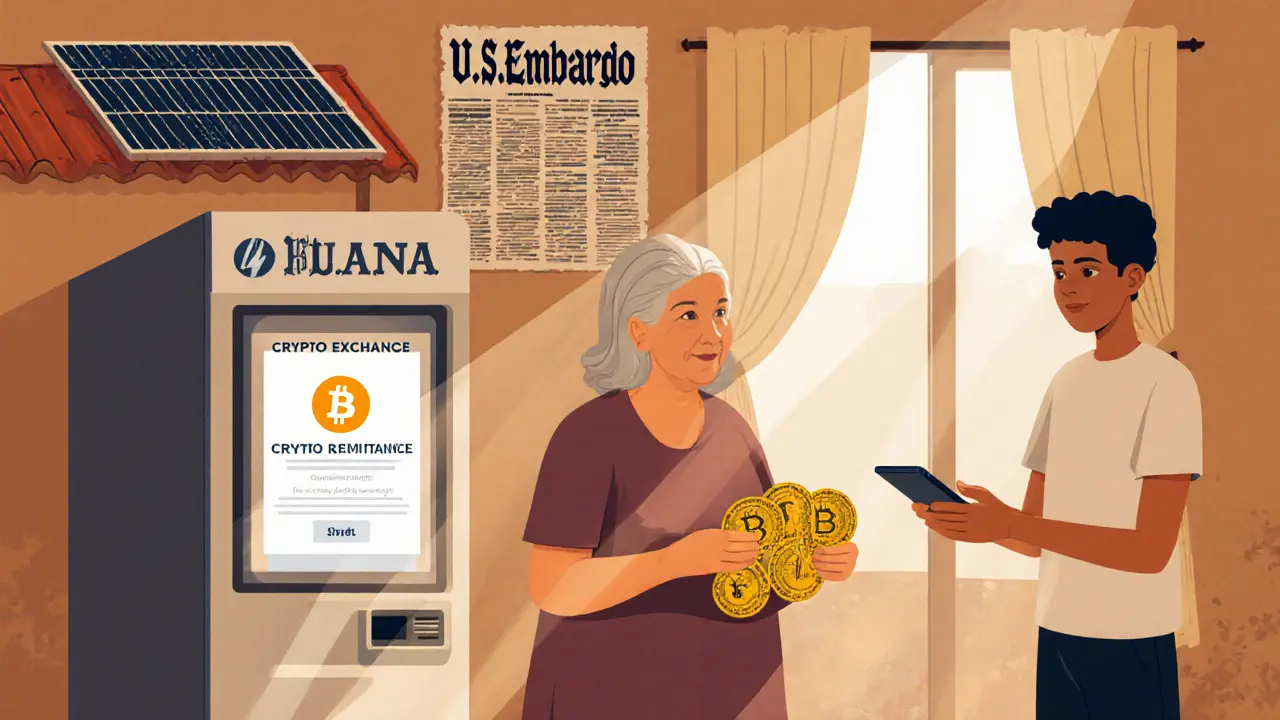Bitcoin Cuba: What's Really Happening with Crypto in Cuba
When people talk about Bitcoin Cuba, the use of Bitcoin as a practical tool for survival and financial independence in Cuba. Also known as Cuban crypto adoption, it's not about speculation—it's about bypassing broken systems. In a country where the national currency has lost value, banks restrict access to dollars, and remittances from abroad are slow and expensive, Bitcoin isn’t a luxury. It’s a workaround.
People in Cuba don’t trade Bitcoin because it’s trendy. They use it because it works. A teacher in Havana might get paid in USD by a relative in Miami, convert it to Bitcoin via a P2P platform like LocalBitcoins or Paxful, then swap it for Cuban pesos through a local trader. No bank approval needed. No waiting days for a wire. No 20% fee from remittance services. This isn’t theory—it’s daily life for tens of thousands. And it’s not just individuals. Small businesses, freelancers, and even state-linked entities are quietly using crypto to move value when traditional channels fail.
But it’s not easy. The Cuban government doesn’t ban Bitcoin outright, but it makes using it risky. Internet access is expensive and unreliable. Many users rely on public Wi-Fi hotspots, which are monitored. Cash-based P2P trades happen in parking lots or cafés, often under the radar. And while the U.S. embargo limits access to global exchanges, Cubans have found ways around it—using intermediaries in Mexico, Panama, or the Dominican Republic to bridge the gap. The result? A grassroots crypto economy built on trust, not platforms.
What you won’t hear in mainstream news is how deeply this affects real lives. A doctor in Santiago might use Bitcoin to buy medical supplies from abroad. A musician in Camagüey sells digital art as NFTs to international buyers. A family gets food through a crypto-backed local barter network. These aren’t outliers. They’re the norm. And while you’ll find posts here about shady exchanges, fake airdrops, and failed tokens, the stories around Bitcoin Cuba are different. They’re raw. They’re real. And they’re happening right now.
Below, you’ll find posts that explore how crypto works in places where governments can’t control it—like Pakistan, Egypt, and Nepal—along with deep dives into the tools people actually use to trade, store, and protect their digital assets. This isn’t about hype. It’s about survival. And if you want to understand where crypto is truly making a difference, start here.
Cuban Crypto Adoption Despite Government Restrictions
Despite U.S. sanctions and limited infrastructure, Cuba has embraced cryptocurrency as a vital tool for remittances, online commerce, and economic survival. Bitcoin and other digital assets are legal, regulated, and widely used by over 100,000 Cubans.
Details +